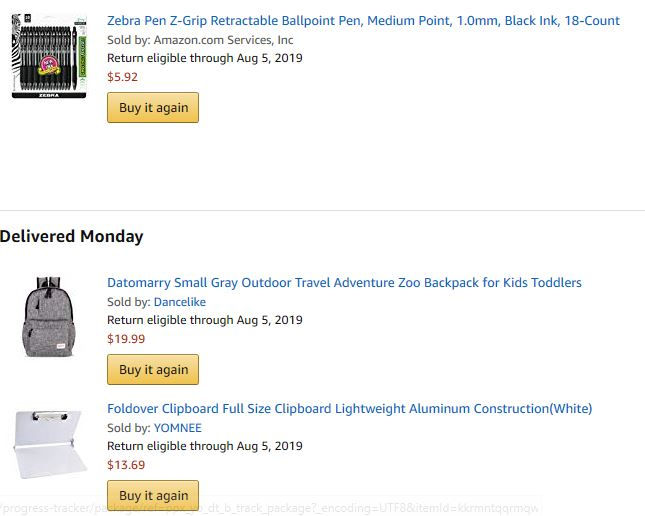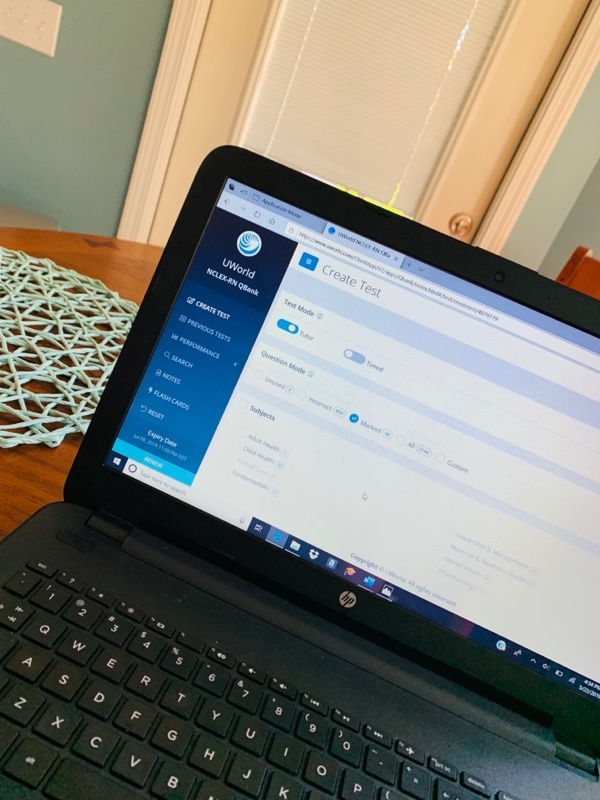Nurse Interview: Do’s and Dont’s
- Jamie Hamilton
- Jun 13, 2019
- 5 min read

SOOO, you graduated nursing school...now what? You have to find a job... This seems like nothing compared to nursing school stress, I know...but, when you are a new nurse, you have SO much that is expected of you and a lot of competition compared to those with experience. That's why it is so important that you stand out at your interviews!
Throughout this lengthy process of several interviews, in attempt to find a decent position as a nurse, I've learned that you can't be too picky. When you are a new nurse, you are considered a big investment to the facility that is going to hire you. They will be investing a lot of time and money to train you and hire you to work for their facility. This is why you should let them know that you are the best candidate at your interviews. I have done research on research to prepare for any and all nursing interviews, in efforts to land my own dream job; so I figured I would share this information to help those of you that don't have the extra time to do all the digging to find out what really makes you stand out compared to other candidates.... Here it is:
Tip #1: Most nursing interviews consist of panel interviews, usually 2-5 people (nurse manager, nurse educator, charge nurse, etc.) This can be scary, especially if you aren't comfortable speaking in front of groups of people...trust me I know. I was terrified. My best advice for this would be to be extra prepared ahead of time. If you are sitting in for a panel interview, make sure that you bring more than enough copies of your resume for everyone present. AND ALWAYS BRING COPIES OF YOUR RESUME. Shake everyone's hands, and look everyone in the eyes when answering questions. And most importantly, be professional. Even if you know there is no way you got the job, make sure that you send them all thank you emails/letters afterwards within 24 hours & Make sure you thank all of them at the end of the interview for taking the time to interview you.
Tip #2: Study your resume. Most interviews I've been too start out with "tell me about your resume" or "tell me about yourself"... KEEP IN MIND: they have your resume in their hands while they are listening to you speak about it....so make sure that you know your own stuff. They want to know your work experience, your skills/certificates that are listed, your accomplishments, and goals, make sure to mention anything that can help you stand out compared to others because this is your chance to shine right here. When they ask you about yourself, do not tell them your age, personal issues, relationship status, etc. Focus on why you are a good candidate, your job background, what skills you can bring to the unit, why you want a job there, and why they should hire you. Keep it short and sweet (2-3 sentences) & professional.
Tip 3: Most interviews now are relating to behavioral based questions. They are no longer asking easier questions like "What are your strengths/weakness"...& I've learned this the hard way: ALWAYS PREPARE FOR QUESTIONS BEFORE HAND. Most behavioral questions are "tell me a time when...." questions or "often times this can happen...tell me when this happened to you, and what you did to correct it.." it is essential that you take the time to prepare answers/scenarios in your head to make you seem confident. They want specific scenarios in STAR format. Situation/Task, Action, Result. They want to know what was the situation with the patient, what did you do, and what happened afterwards. This takes planning to come up with the perfect answers. They will try to put you on the spot, but if you have these scenarios in the back of your head, you can try to manipulate them to work for answers to similar questions that they may ask. However, when answering questions, don't sound like you have had these planned out. Take a second to "think about a time when" and then speak. A normal delay while you think about past events is normal, and expected. Any response that is TO quick, might seem a little scripted.
Tip #4: Do your research! You should know the hospitals/facilities mission statement, values, history etc. Always look this up before your interview, so when they ask you "Why do you want to work here at this facility, compared to the others in the area?" This is when you get to wow them by letting them know that you've done your research and that you mean business. Tell them that you are fascinated by the history because of __, or that you value the same mission statement that they do, or that you like the hospital is non-profit, or a magnet hospital. This research helps you to stand out. You don't want to just give them a basic answer like " I need a job " or "this is close to my house". Remember, you are an investment to them. You must make them realize that their money and time will be worthwhile to hire you at their facility. No one wants to hire someone that is going to turn around and leave when something better comes along; so don't make them feel that way.
Tip #5: Smile and be yourself. This can be difficult because obviously you will be stressed out as this is so important for you. Keep in mind, they really just want to get to know you, and ensure that you will be a good fit for the hospital and the unit. Just go in there with a positive mindset and know that if it is meant to be then it will happen for you.
Here are some questions that I've studied that might help you prepare:
*What strengths do you have that will enhance your ability to perform this job?
*What are your weaknesses? OR How will we know when you are stressed?
*Tell me about your philosophy of customer service or patient care?
*Tell me about a situation in the past where you had to deal with an upset coworker or customer/patient.
*Tell me about a time that you made a mistake/error. What resulted and what did you learn?
*Describe the characteristics that you possess that make you a team player.
*Describe a time when you had many projects due at the same time. What steps did you take to complete them?
*Since there are many healthcare organizations in the northeast Florida region, why do you want to work for us?
*Name a specific time I handled a patient complaint.
*What are some issues you may have experienced at your last job and how did you resolve them? (NEVER TALK BAD ABOUT YOUR PREVIOUS EMPLOYER)
*What type of supervisor do you prefer?
*What makes you suited for this position?
*Tell me about a time you had to meet a supervisor or coworker unusual request. How did you handle it?
What are your short term and long-term goals?
Here are some questions to think about that may come in handy when asked other questions
*How do you handle pressure? OR tell me about a time when you had to work to get a specific task done in a stressful situation. What was the situation and how did you react?
*Ever a time when you experienced tension between yourself and a coworker? *never talk bad
*How would your coworkers describe you?
*How do you address opposition?
*Be able to tell about yourself/ your resume
Tip #6: ALWAYS ASK QUESTIONS AT THE END OF THE INTERVIEW!
When they ask if you have any questions for them, you must always say "Yes, I do." This shows that you are interested and that you care enough about the position to ask them questions.
Here are some to consider:
*What is your training process?
* What is a day like on your floor? For example, do you do huddle each morning or midday?
*What is the timeline for me to hear back from you regarding this position?
*Do you feel your unit works well as a team? Ex. PCT’s and nurses.
Believe in yourself
GOOD LUCK :)






Comments